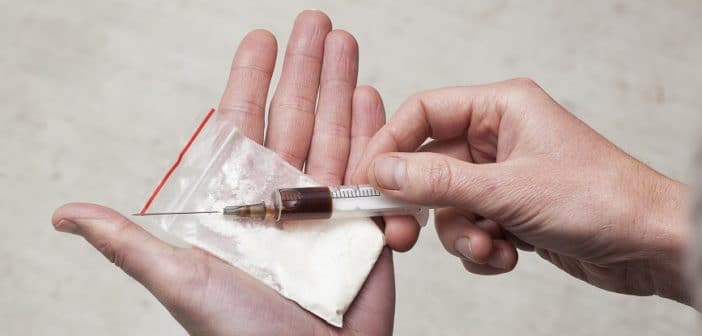This post was originally published don February 18, 2015.
One of my favorite things about the needle exchange where I worked was that it was a safe, welcoming space for active drug users. My least favorite thing was that, in order to be a participant, you had to be on drugs.
This was my first thought when I came upon a HuffPo piece by Tony Newman, a representative from the Drug Policy Alliance, introducing a new treatment program called Exponents. Exponents describes itself as a therapeutic community for people suffering from the effects of substance abuse. Specifically, it’s for people who have struggled with addiction, with a special emphasis on those who’ve experienced incarceration and may live with HIV. Exponents offers a continuum of free services to addicts and people at various stages in recovery. In other words, they don’t demand abstinence from program participants. “They are about getting people into the door, not setting up barriers,” writes Newman.
The truth is that 12-step programs can be inhospitable to people still active in some form of addiction. I’ve personally gone to great lengths to say this is not the AA way. But sure, it happens. People are excluded from complete participation, even when whatever they’re still using is not the one that’ll kill them (such as a heroin addict on maintenance medication or an alcoholic who smokes pot). At the start of many meetings, people on any “non-prescribed mood or mind altering substances” are told they’re not allowed to share, and I can see how the experience of starting a sober day count over again after a relapse can be inadvertently shaming. I can definitely see how anyone who isn’t completely “clean and sober” according to Joe Big Book’s definition can sometimes be made to feel unwelcome in the rooms of AA.
I can also see how harm reduction communities are inhospitable to people wanting to get clean. For starters, if you’re not currently using, you can’t sign up. If you no longer have a habit, you’re discouraged from attending. The reason for this is obvious: the space, including all the friendly staff that once supported you, become “triggers” and that’s not safe for anyone. Even though I think they were technically still allowed on-site because they had a reason to be there, it became the case that when I had a student who’d stopped using, that person found it difficult to continue participating in my writing class. To me, I always thought it sucked that in order to quit drugs, you had to give up your whole support system.
Sounds like Exponents might be a place for people who don’t fit into either the 12-step or harm reduction communities. The treatment center focuses on building a participant’s esteem by engaging them in enrichment activities such as educational programs and meditation, something I fully support. Exponent also gets program participants involved in advocacy and activism—things like supporting clean needle initiatives and reforming Rockefeller drug laws. Also, treatment at Exponents is voluntary, rather than court ordered.
I wasn’t coerced into treatment so I can’t speak to this experience but like most alcoholics and addicts, I bristle at people telling me what to do. I hated my rehab, but I went because I knew I needed it. I kept going, even though I found the mandated ritual of peeing in cups before every group demeaning. Relapse wasn’t a part of my experience, but if it had been, the fact that I would have been kicked out of that program for using seems like bullshit. And in a many traditional treatment facilities, that’s exactly what happens.
Not at Exponents, apparently, and so for this and other reasons, I can see a lot of benefits to this program, and why the organization is already seeing some proven success. A study published in the International Journal of the Addictions demonstrated significant benefits for those who attended the program versus a control group who did not attend. The center’s website boasts a 75% graduation rate, as well as a higher success rate than traditional programs, even as a they serve a larger percentage of drug users who are chronically ill.
I can also see some concerns. “Improving one’s life is a journey,” Newman writes, and at another point in the piece, “Not everyone is going to be abstinent of all drugs.” Howard Josepher, the organization’s founder, writes on the blog, “We need to recognize that lifelong sobriety is not the only way to overcome addiction.” While I agree that sobriety is a process, and that it’s certainly true that not everybody’s going to get clean, my hope is that complete abstinence isn’t a goal that’s implicitly discouraged, which it often seems to be among other harm reduction communities. I’ve worked hard to accomplish freedom from addiction and compulsive behaviors, and I don’t know how open I would have been to complete abstinence had it not been strongly suggested. Josepher argues that “successful recovery can include responsible use of some substances” and while this may be true for some, I know that for me, abstinence was the only way.
Harm reduction and 12-step philosophies aren’t entirely incompatible. After all, “meeting a person where they’re at” might mean meeting someone who wants to live drug-free. I met people at the needle exchange who maybe put together some sober time and had a desire to live free from dependency. But many were, for various reasons, not a good fit in AA. I’ve always felt sorry there was nowhere to send them. Maybe Exponents is that place.
Sponsored DISCLAIMER: This is a paid advertisement for California Behavioral Health, LLC, a CA licensed substance abuse treatment provider and not a service provided by The Fix. Calls to this number are answered by CBH, free and without obligation to the consumer. No one who answers the call receives a fee based upon the consumer’s choice to enter treatment. For additional info on other treatment providers and options visit www.samhsa.gov.





